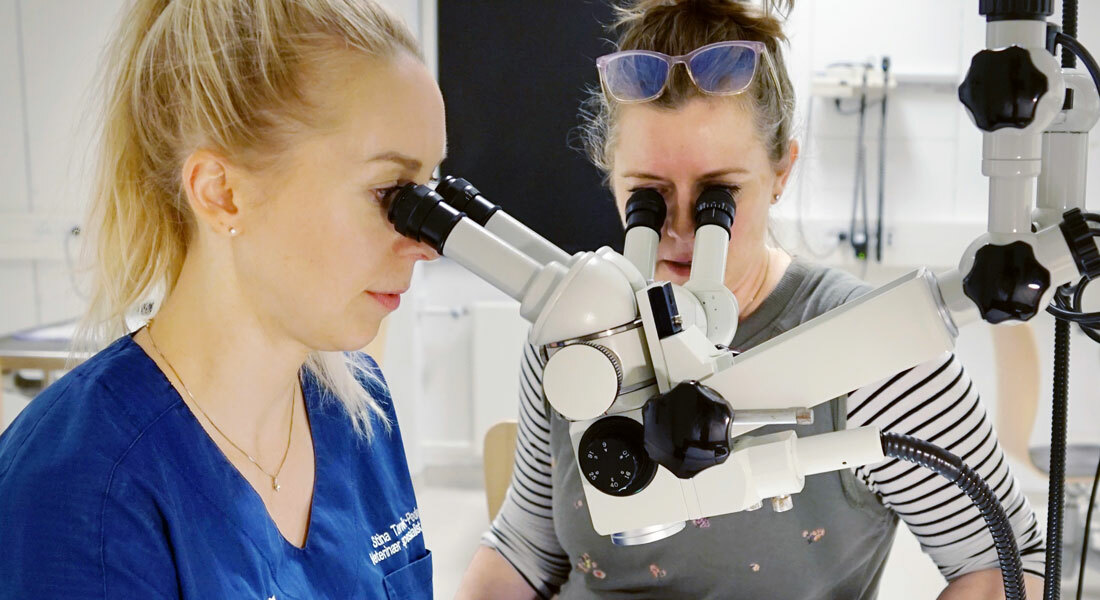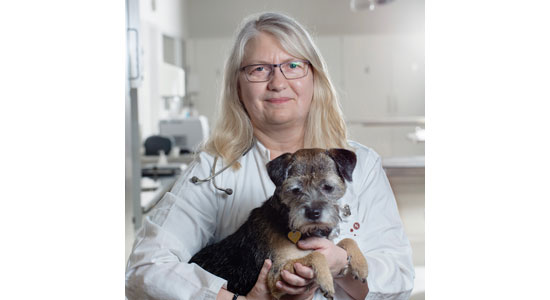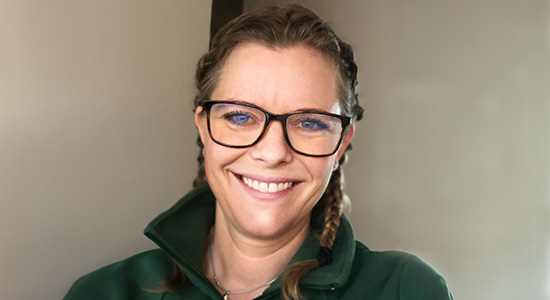Click here to read the curriculum in the course catalogue.
Course code: SCAM25055U

The purpose of this course is to extend the student’s knowledge, skills and competences within the approach to, assessment and management of the companion animal ocular patient in need of surgery.
The course will extend the students assessment and management of companion animal ophthalmic patients in need of surgery and plan the perioperative management of the patient including special anesthesia and analgesia requirements, as well as pre- and post-surgical treatment.
Read more about the specialisation tracks and the Master's programme on the main page:

Annemarie Thuri KristensenProfessor |

Michala de Linde HenriksenDVM, PhD, Dipl. ACVO |
Course dates 2026
9 -13 November 2026
Course dates 2028
13 - 17 November 2028
The course is available every second year.
Examination
Please find dates and details about the exam in the exam schedule.
Having completed the course, the student must be able to:
Knowledge
Skills
Competences
You must meet the following criteria to be admitted to this course:
Find detailed information about the formal requirements for this course.
Read more about admission on the main page of Master of Companion Animal Clinical Science.
EU/EEA citizens*
Single course student: 36,500 DKK
Master student: 33,000 DKK
Non-EU/EEA citizens
Single course student: 40,740 DKK
Master student: 37,240 DKK
*Citizens of the EU, EEA or Switzerland is entitled to a subsidised tuition fee, due to EU legislation, hence the difference in price.
University of Copenhagen
University Hospital for Companion Animals
Dyrlægevej 16
1958 Frederiksberg
Denmark
Christine Gulstad
Study Administration Officer
lifelonglearning@adm.ku.dk
Tlf: +45 35 32 12 73